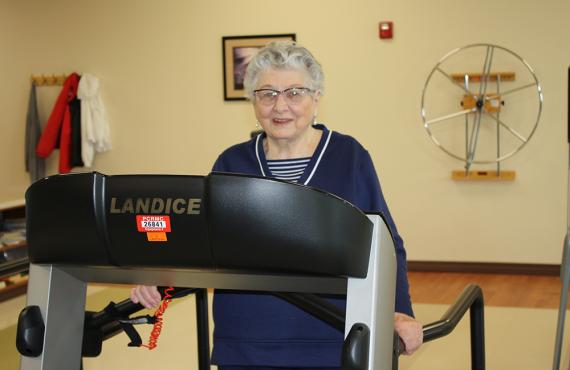Published on November 1, 2021
Read Time: Three Minutes
By Fawad Virk, MD, FACC
Phelps Health
Heart attacks (or myocardial infarctions) occur when there is a complete or partial blockage of blood flow to the heart muscle.

The blockage can be due to a blood clot or cholesterol plaque (hardening of the arteries), which results in the heart muscle becoming weak. Eventually, this blockage can reduce the heart’s ability to pump blood.
Across the United States, an estimated 800,000 people have a heart attack in a year. According to Centers for Disease Control and Prevention (CDC), someone has a heart attack every 40 seconds.
Coronary artery disease, which occurs when the arteries that supply blood to the heart become narrow or clogged due to a buildup of plaque, is the most common cause of heart attacks.
A severe type of heart attack called a STEMI (ST elevation myocardial infarction) happens when there is a sudden, total blockage of the coronary artery, which supplies blood to the heart. According to one study, approximately 38% of patients who go to the hospital with a heart attack have a STEMI.
If there is a significant delay in opening blockages in the arteries to the heart, the heart muscle can develop scarring. If left untreated, the weakened heart muscle will not pump blood well, leading to heart failure.
However, if arteries to the heart can be opened in a timely manner, heart damage can be avoided.
That’s why getting medical help as soon as you experience symptoms of a heart attack is so important.
Common symptoms of a heart attack include the following:
- Chest pain
- Pressure in the center or back of the chest
- Chest pain that moves to the left arm or jaw
Some patients feel pressure or a squeezing sensation in their left arm, shoulders or jaw only.
Other symptoms of heart attack may include the following:
- Weakness
- Lightheadedness or fainting
- Cold sweat
- Nausea or vomiting
- Shortness of breath
These heart attack symptoms are common in both men and women. Sometimes, women present with different symptoms, such as nausea, vomiting, lightheadedness or extreme fatigue.
If you or your loved one is having a sudden onset of the above-mentioned symptoms, you should call 911 or go to the nearest emergency room as soon as possible.
People most at risk of having a heart attack are those who have high cholesterol, high blood pressure and high blood sugar. Individuals who are obese or who smoke also are at increased risk for heart attacks.
Age, gender, ethnicity and other genetic factors play a role in an individual’s chance of experiencing a heart attack.
Your family history also can affect your risk. If your mother, father or other first-degree relative had a heart attack at a young age, your risk for a heart attack may be high.
The average man will experience his first heart attack around age 65, while the average woman is likely to have her first heart attack at age 72.
The following are ways you can lower your risk for a heart attack:
- Get a regular medical checkup with your primary care physician or provider.
- Monitor your blood pressure. (Uncontrolled blood pressure can lead to heart attacks and strokes.)
- Monitor your blood sugar (if you have diabetes).
- If you smoke, QUIT.
- If you drink alcohol, reduce the amount you drink.
- Find ways to manage stress in your life.
- Get exercise daily.
- Eat fresh fruits and vegetables.
- Monitor your cholesterol level.
- Talk with your healthcare provider if you need any medications to reduce your risk of heart attacks.
Fawad Virk, MD, FACC, is a board-certified cardiologist and interventional cardiologist at Phelps Health. Learn more about cardiology and heart care services at Phelps Health or call the Phelps Health Heart and Vascular Center at (573) 308-1301.
Learn More About Cardiac Care
Fawad Virk, MD, FACC, is a board-certified cardiologist and interventional cardiologist at Phelps Health. Learn more about cardiology and heart care services at Phelps Health or call the Phelps Health Heart and Vascular Center at (573) 308-1301.

